第99章
Who has distinguished them more acutely? Who has written about them more diligently and more fully?--who, though he is less pleasing in his eloquence, is nevertheless so full of instruction and wisdom, that in all the erudition which we call secular, but they liberal, he will teach the student of things as much as Cicero delights the student of words.And even Tully himself renders him such testimony, as to say in his Academic books that he had held that disputation which is there carried on with Marcus Varro, "a man,"he adds, "unquestionably the acutest of all men, and, without any doubt, the most learned."(1) He does not say the most eloquent or the most fluent, for in reality he was very deficient in this faculty, but he says, "of all men the most acute." And in those books,--that is, the Academic,--where he contends that all things are to be doubted, he adds of him, "without any doubt the most learned." In truth, he was so certain concerning this thing, that he laid aside that doubt which he is wont to have recourse to in all things, as if, when about to dispute in favor of the doubt of the Academics, he had, with respect to this one thing, forgotten that he was an Academic.But in the first book, when he extols the literary works of the same Varro, he says, "Us straying and wandering in our own city like strangers, thy books, as it were, brought home, that at length we might come to know of who we were and where we were.Thou has opened up to us the age of the country, the distribution of seasons, the laws of sacred things, and of the priests; thou hast opened up to us domestic and public discipline; thou hast pointed out to us the proper places for religious ceremonies, and hast informed us concerning sacred places.Thou hast shown us the names, kinds, offices, causes of all divine and human things."(2)This man, then, of so distinguished and excellent acquirements, and, as Terentian briefly says of him in a most elegant verse, "Varro, a man universally informed,"(3)who read so much that we wonder when he had time to write, wrote so much that we can scarcely believe any one could have read it all,--this man, I say, so great in talent, so great in learning, had he had been an opposer and destroyer of the so-called divine things of which he wrote, and had he said that they pertained to superstition rather than to religion, might perhaps, even in that case, not have written so many things which are ridiculous, contemptible, detestable.But when he so worshipped these same gods, and so vindicated their worship, as to say, in that same literary work of his, that he was afraid lest they should perish, not by an assault by enemies, but by the negligence of the citizens, and that from this ignominy they are being delivered by him, and are being laid up and preserved in the memory of the good by means of such books, with a zeal far more beneficial than that through which Metellus is declared to have rescued the sacred things of Vesta from the flames, and AEneas to have rescued the Penates from the burning of Troy; and when he nevertheless.gives forth such things to be read by succeeding ages as are deservedly judged by wise and unwise to be unfit to be read, and to be most hostile to the truth of religion;what ought we to think but that a most acute and learned man,--not, however made free by the Holy Spirit,--was overpowered by the custom and laws of his state, and, not being able to be silent about those things by which he was influenced, spoke of them under pretence of commending religion?
CHAP.3.--VARRO'S DISTRIBUTION OF HIS BOOKWHICH HE COMPOSED CONCERNING THE ANTIQUITIES OF HUMAN AND DIVINETHINGS.
He wrote forty-one books of antiquities.These he divided into human and divine things.Twenty-five he devoted to human things, sixteen to divine things; following this plan in that division,--namely, to give six books to each of the four divisions of human things.For he directs his attention to these considerations: who perform, where they perform, when they perform, what they perform.Therefore in the first six books he wrote concerning men; in the second six, concerning places; in the third six, concerning times; in the fourth and last six, concerning things.Four times six, however, make only twenty-four.But he placed at the head of them one separate work, which spoke of all these things conjointly.